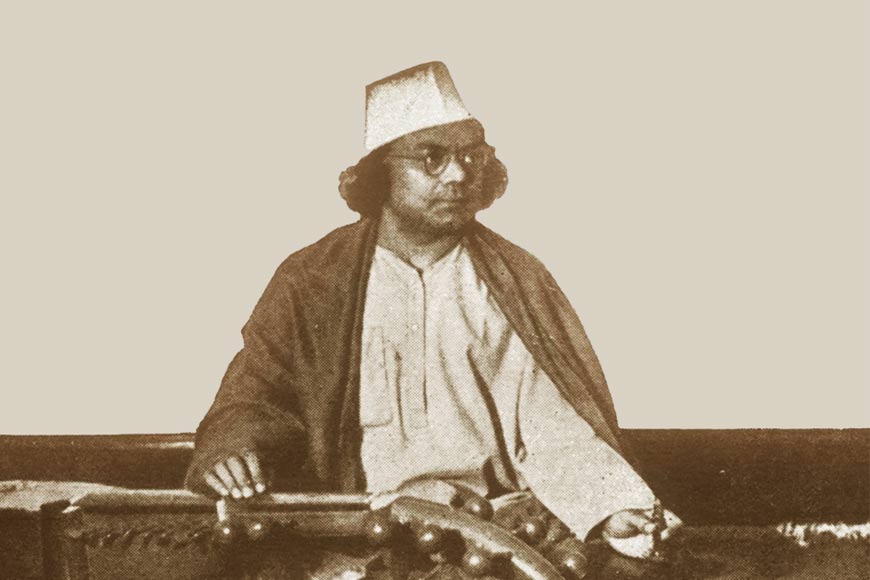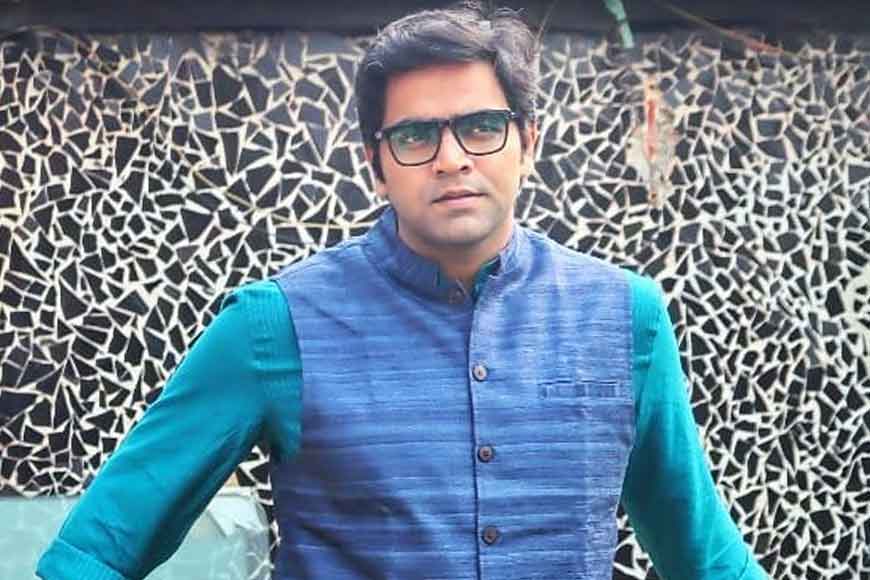New Biopic on ‘the rebel eternal’ Nazrul to trace his entire life – GetBengal story

On May 24, 1899, a ‘comet’ appeared in Churulia, a village in the Burdwan district. A rebel poet, writer, journalist, revolutionary thinker, and musician, Kazi Nazrul Islam, was born. Nazrul was deeply attracted to the traditions of folk music and poetry in rural Bengal, especially around his village, Churulia. He began composing songs for leto singing groups in his early teens, when he was exposed to Hindu myths and Puranic stories. With the outbreak of World War I, he enlisted in the British Army, where he worked as a quartermaster and studied classical Persian poets like Hafiz and Rumi.
Nazrul was posted in Karachi when he came under the influence of the Bolshevik Revolution. This had a seminal influence on his life and work. Within a few years, Gandhi launched the Non-Cooperation movement, which influenced him deeply and awakened in him an awareness of the plight of millions of Indians whose poverty and misery became an important part of his artistic consciousness and poetic oeuvre. The poems of ‘Agnibina’ from this period are full of his newly awakened political consciousness. Similarly, the Khilafat Agitation made him realise the necessity and imperatives of a Hindu-Muslim brotherhood that would rise against the British.
In 1922, he began to edit a weekly, Dhumketu (The Meteor), where he stated, ‘Dhumketu is not a journal devoted to communalism. Its primary motive is to remove the obstacles or misunderstandings that are strewn in the path of Hindu-Muslim unity.’ This investment in secular principles would remain a deeply significant strand in Nazrul’s writings.
This idea of the secular as not just a political tool but as a part of the domain of literature and literary language is one of Nazrul’s great contributions to the contemporary public sphere and to Bengal’s literary aesthetic. It is an expression of this idea that we see in his poetic oeuvre again and again: an intermingling of Hindu and Muslim images and words that make his poetry so rich and iconoclastic in its sheer vitality. He wrote more than 4,000 songs, and many of them were about protesting and fighting against unfair rules and powerful rulers. These songs inspired millions of Bengali freedom fighters to take up the cudgel against British colonial rule.
In the September 26, 1922 issue of ‘Dhumketu’, Nazrul's political poem, Anandamoyi's Arrival, was published. On November 8, this issue was banned, and on November 23, he was arrested in Comilla and brought to Calcutta for trial. The trial began on January 7, 1923. He was found guilty. On January 16, the judge sentenced Nazrul to one-year rigorous imprisonment. However, nothing could suppress his indomitable spirit, and he continued to write prolifically. Nazrul produced a large body of poetry, music, novels, and stories. The leitmotifs of his works were themes like equality, justice, anti-imperialism, humanity, rebellion against oppression, and religious devotion.
From 1942 on, Islam was afflicted with a rare neurodegenerative disorder called Pix's disease. The frontal and lateral lobes of the brain shrink. The doctors treating him declared the illness impossible to cure. By then, he had stopped talking and had lost his memory completely.
In 1972, Nazrul and his family were invited to live in the newly-formed state of Bangladesh. He was honoured with the title of ‘National Poet of Bangladesh.’ Meanwhile, Nazrul’s health deteriorated steadily despite treatment. In 1974, Kazi Aniruddha, the youngest son of the poet and famous guitarist, died. Nazrul followed suit and finally breathed his last on August 29, 1976.
However, it often comes as a surprise that in the public sphere, Nazrul has remained a slightly indistinct figure if we compare him to other stalwarts of Bangla poetry. The answer to that may lie in Nazrul’s life and his radical poems.
In 1999, the Ministry of Information, Films Division, released a biographical documentary about the poet on his birth centenary, titled ‘People’s Poet Kazi Nazrul Islam’. The documentary, directed by K. G. Das, explores the multifaceted genius of the poet. Precious documentary footage of the poet himself enhances the value of this film.
On November 20, 2020, another documentary titled "Biography of Nazrul" was released in Bangladesh. Directed by Ferdous Khan, the 95-minute documentary is presented through the exhibition of memorial sites, work eulogies, and his personal life.
Directed by Anjan Das, 'Bidrohi Kobi Kazi Nazrul Islam’, a film about Kazi Nazrul Islam, traces the life of the legend, the sources of his inspiration, and how his poetry came to reflect his fiery and rebellious spirit. The film is A biopic of the rebel poet will start shooting this winter. Directed by Abdul Alim, the film ‘Kazi Nazrul Islam’ features Kinjal Nanda essaying the role of Kazi Nazrul Islam. This is the first biopic that will trace the entire life of the poet. Earlier, Kinjal had played the role of Binoy Basu in the film '8/12 Binoy Badal Dinesh'.
 Kinjal Nanda
Kinjal Nanda
Veteran actor Kharaj Mukhopadhyay will appear in the role of Fazlul Haque, Kanchana Maitra will play Birajasundari Devi, and a host of accomplished actors will play important roles in the film. A number of actors from Bangladesh will also be roped in for the project. Discussions are ongoing on whether Fazlur Rahman Babu of Bangladesh should be cast for the role of Ali Akbar Khan. On the other hand, Shantilal Mukhopadhyay has been offered the role of Sajanikanta Das.
Secular principles were a deeply significant strand in Nazrul’s writings. His commitment to socialist ideas was a point of contention with his contemporaries, especially with the writers of ‘Shonibarer Chithi’, a monthly literary magazine founded in 1929. Sajanikanta Das, the editor of ShonibarerChithi', was a fierce opponent of the radical politics of the younger group of writers who contributed to Kallol, a progressive literary journal.
Rabindranath Tagore and Nazrul shared a mutual admiration for one another. While Nazrul was in jail, Rabindranath finished his dance drama, Basanta, dedicated to "Sriman Kobi Kazi Nazrul Islam." This was a powerful signal. Everyone was shocked to learn that Tagore had dedicated his work to a prisoner. Rabindranath's acknowledgment sealed Nazrul's fate as a poet.
Nazrul wrote Tirtha Pathik as an eulogy to Rabindranath as well as Robihara after Rabindranath's death. One maestro was paying homage to another, and the other did the same when he had his stage to perform. The filmmakers are yet to finalise the actor who will play the role of Kabiguru in this film. A source claims that Ranjit Mallick or Chiranjit Chakraborty are being considered for the role of Rabindranath in this film.
Produced by JB Productions, Saugata Bose is the screenwriter of the film, Joy Sarkar is in charge of music direction, and Arghakamal Mitra is in charge of film editing.









